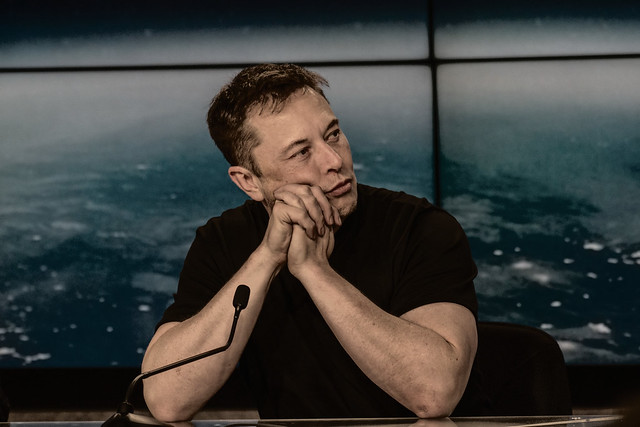 AI
AI
 AI
AI
 AI
AI
Elon Musk revealed Tuesday evening that his company Neuralink and its brain-machine interface technology is almost ready for human testing.
Since the company was founded in 2017, it has been hypersecretive about what its ambitions are. On Tuesday at an event in San Francisco, Musk made it clear that what the company hopes to achieve is creating a kind of symbiosis of human and computer that theoretically should enable people to control something with their mind.
The company said it has developed extremely small threads, smaller than a human hair, that can be implanted into the human brain. These threads will be injected into the brain by a robot and, once in place, will detect the activity of neurons.
Musk described the robot as a “sewing machine-like” device that can intricately place the threads where they need to be. He said at the presentation that this wasn’t about taking over human minds, but working with people to “to achieve a symbiosis with artificial intelligence.”
Neuralink President Max Hodak pointed out at the event that for years scientists and doctors have been working on similar technologies, whether for paralyzed people controlling the arm of a robot or for helping people with Parkinson’s disease. Neuralink claimed its system has 1,000 times more electrodes than any FDA-approved system for Parkinson’s.
Musk also again pointed to his fears of an artificial intelligence superior to human intelligence and how this could be catastrophic for humankind. IMusk thinks humans need to get connected to keep up.
“I think this is going to be important at a civilization-wide scale,” he said “Even under a benign AI, we will be left behind. With a high-bandwidth brain-machine interface, we will have the option to go along for the ride.” He even said such technology could lead to human telepathy.
Notwithstanding Musk’s dread of AI superiority and somewhat distant scenarios, Neuralink hopes to begin testing its system on humans in 2020. Matthew McDougall, Neuralink’s head neurosurgeon, said at the event that the device will first be tested on “patients with serious unmet medical diseases.” The first studies will involve people with complete paralysis.
“I think it’s important for us to address brain-related diseases,” Musk said, talking again about more pressing concerns. “Whether it’s an accident or congenital or any kind of brain-related disorder or a spinal disorder – if you know somebody who’s broken their neck or broken their spine, we can solve that with a chip, and this is something that I think most people don’t quite understand yet.”
Musk also came out with a statement that shook the crowd, saying that Neuralink has been testing its system on monkeys. “We definitely need to address the elephant in the room, the monkey in the room,” Musk said. “A monkey has been able to control the computer with his brain. Just, FYI.” Perhaps for ethical concerns this was not something included in the white paper, but it seems Musk thought it had to be said. “The monkey is going to come out of the bag,” he told the crowd.
THANK YOU